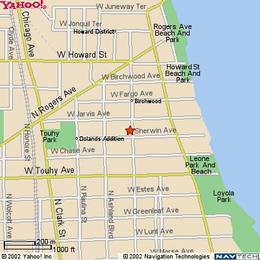
The participatory budgeting networks are abuzz with excitement about the participatory budgeting effort being introduced in the 49th Ward of Chicago.
The Watson Institute for International Studies at Brown University is in the lead on the Chicago effort as part of its Participatory Democracy Project under the direction of Watson Institute Associate Professor Gianpaolo Baiocchi. The Project’s research, supported in part by the Ford Foundation, will result in a book that takes stock of the “civil society agenda” today. Their efforts in the 49th Ward of Chicago reflect the invitation of Chicago Alderman Joe Moore.
For updates from Watson and Brown University on the effort in Chicago, see (1,2).
This is indeed exciting. Participatory budgeting has the potential to strike a much healthier relationship between citizenry and the creation and application of government credit, regulation and taxes. Developed originally in Brazil, it has not yet been tried in the United States.
The opportunities to re-engineer government resources in communities are much greater than many of us realize. When I became Assistant Secretary of Housing in the first Bush Administration, I was first inspired to look at the federal budget by neighborhood when the head of the Chicago Housing Authority requested permission to take public housing funds in projects spending $250,000 per unit to buy government foreclosed single family homes and rehab them for $50,000 per unit in the same Chicago neighborhood. On Wall Street, getting five for the price of one is what we call an “arbitrage.”
The request was denied. It was illegal to move housing funds from one federal housing program to another, regardless of whether it would create many more homes in the same neighborhood. When I suggested the same opportunity to one official in the Clinton Administration, she said, “but how would we generate fees for our friends?”
Alas, we have a significant challenge with many Americans and companies now dependent on billions in government programs developed through political considerations without professional investment standards and accountability for performance by county or place.
America is filled with such “community arbitrages.” They offer the potential to get much more for less if we approach change with a new concern for both people, natural resources and both public and private financial resources. To find and re-engineer these opportunities is a complex task; ideally done with citizen participation.
Unfortunately, the chances that such process will be used to justify another round of financial exploitation of communities and their assets are very real.

